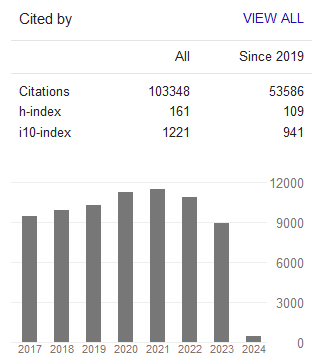Empirical Analysis of Factors Impacting Turnover Intention among Manufacturing Workers
- Yuting Li
- Rapinder Sawhney
- Guilherme Luz Tortorella
Abstract
The purpose of this study was to investigate how turnover intention relates to job satisfaction, organizational commitment, leadership, job performance, and work-family conflict among manufacturing workers in Tennessee, USA. A causal model was proposed, and a turnover intention survey questionnaire for manufacturing workers was developed. The data were collected from manufacturing companies in the Tennessee area and analyzed by SPSS and structural equation modeling (SEM). The results of our study indicated that job satisfaction and organizational commitment negatively and significantly affected manufacturing workers’ turnover intentions, while work-family conflict positively and significantly affected turnover intentions. Although leadership indirectly influenced turnover intention, its effects on turnover intention were fully mediated by job satisfaction and organizational commitment. No effect of job performance on turnover intention was found in this study with manufacturing workers. The results suggested that policies for enhancing worker job satisfaction and organizational commitment, balancing work-family conflict, and improving leadership style should be proposed to reduce turnover intention.
- Full Text:
 PDF
PDF
- DOI:10.5539/ijbm.v14n4p1
Journal Metrics
Google-based Impact Factor (2023): 0.86
h-index(2023): 152
i10-index(2023): 1168

Index
- Academic Journals Database
- AIDEA list (Italian Academy of Business Administration)
- ANVUR (Italian National Agency for the Evaluation of Universities and Research Institutes)
- Berkeley Library
- CNKI Scholar
- COPAC
- EBSCOhost
- Electronic Journals Library
- Elektronische Zeitschriftenbibliothek (EZB)
- EuroPub Database
- Excellence in Research for Australia (ERA)
- Genamics JournalSeek
- GETIT@YALE (Yale University Library)
- IBZ Online
- JournalTOCs
- Library and Archives Canada
- LOCKSS
- MIAR
- National Library of Australia
- Norwegian Centre for Research Data (NSD)
- PKP Open Archives Harvester
- Publons
- Qualis/CAPES
- RePEc
- ROAD
- Scilit
- SHERPA/RoMEO
- Standard Periodical Directory
- Universe Digital Library
- UoS Library
- WorldCat
- ZBW-German National Library of Economics
Contact
- Stephen LeeEditorial Assistant
- ijbm@ccsenet.org
